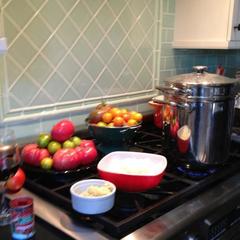-
Welcome to the eG Forums, a service of the eGullet Society for Culinary Arts & Letters. The Society is a 501(c)3 not-for-profit organization dedicated to the advancement of the culinary arts. These advertising-free forums are provided free of charge through donations from Society members. Anyone may read the forums, but to post you must create a free account.
Opinions please -
-
Similar Content
-
- 132 replies
- 23,448 views
-
- 7 replies
- 1,675 views
-
- 1 reply
- 893 views
-
- 3 replies
- 7,090 views
-
- 155 replies
- 54,116 views
-
-
Recently Browsing 0 members
- No registered users viewing this page.





Recommended Posts